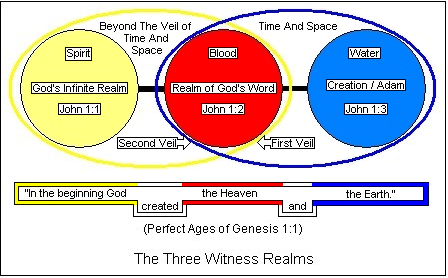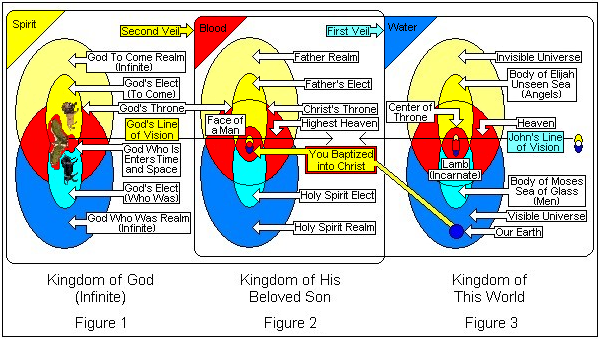Hi
@URAVIP2ME
While I am not quite what you think the text you are using means in specific terms, can we start by agreeing what the text an early Christian read, would have said? I have to point out that your biblical quotes are not the same as the early Christian using their LXX would have read.
EARLY BIBLICAL TEXT OF THE SEPTUAGINT READS DIFFERENTLY THAN THE KING JAMES/MASORETIC BASED BIBLES
For examples in your first verse,
Isaiah 40:26
“behold who hath created these things…” was your quote.
however, this is not what the Greek LXX Old Testament actually says.
It reads
“και ιδετε τις κατεδειξε ταυτα παντα” which actually means
“and behold who has displayed all these things”
κατεδειξε does NOT refer to a creation, but instead refers to a “display, hightlight, demonstrate, show, express, etc.
You can certainly make the argument (somehow) that Isaiah was quoting the medieval hebrew of the middle ages (the Masoretic uses the word ברא which can be translated “create”). However, if Isaiah IS using a proto Hebrew text, we cannot tell which of several versions he was using. So if the Christian was reading from the LXX that Paul used (written approx. 300 b.c.) then they would have read “
behold, who has displayed all these things” in this sentence and not a reference to creation.
(For Greek readers, the entire LXX for vs 26 is : Αναβλεψατε εις υψος τους οφθαλμους υμων και ιδετε τις κατεδειξε ταυτα παντα ο εκφερων κατ αριθμον τον κοσμον αυτου παντας επ ονοματι καλεσει απο πολλης δοξης και εν κρατει ισχους αυτου ουδεν σε ελαθε.)
Regarding :
Jer 10:12 He hath made the earth by his power, he hath established the world by his wisdom, and hath stretched out the heavens by his discretion.
I need to point out that this sentence occurs in the context of chapter which is making comparisons between idols “
Gods that Have not made heaven and earth…” (vs 11 and earlier) and the true God who “
hath made the earth…”
The observation that idols and false Gods were “helpless” and without power while the true God has power is a recurring theme in the early Jewish literature
For example, Abraham says of his Father Terah (who creates and sells Idols) : “
I said in my heart, “What is this inequality of activity which my father is doing? Is it not he who is god for his gods (idols), because they come into being from his sculpting, his planning and his skill? They ought to honor my father because they are his work…” (apo Abraham ch 3:2-4) and "
They have a mouth but don't speak, they have eyes but don't see" and even Terah who makes the idols, points out to Abraham that the very idols he makes "
have no power" to do anything. (Bet ha-Midrasch). They cannot either help nor hurt mankind nor even protect themselves. This is one difference between the gods that man makes and the real God. This tradition is repeated in the early Jewish and Christian and Islamic literature over and over.
Similarly, Jeremiah is making the same comparison that it is not idols, but God who has made the earth and created it by his “power” and by his “wisdom” which idols do not possess.
This does not mean that “power” and “wisdom” are material things out of which the earth is made.
Another point is that the Greek of the phrase “
He hath made the earth by his power…” is
Κυριος ο ποιησας την γην εν τη ισχυι αυτου… The preposition
εν is called the “maid of all work” among the Greek prepositions and “by his power” in this case does not literally mean “out of his power” as though power were a material thing. If so one would have expected the Greek to use the words for this such as “δια” or “δι” (through or by, or another word etc.)
The sense and meaning in this comparison is that the real God has power to do great things and the idols are powerless, idols do not have power or characteristics which allow them to make do or anything, but rather,
man makes them.
In the next phrase “
he hath established the world by his wisdom”, the phrase in LXX is “
…ο ανορθωσας την οικουμενην εν τη σοφια αυτου…”.
The greek word rendered “established” is
not a term used to
create (not really even to “establish”), but to “set up”, erect, found, to improve, to recover, or remedy. For example one can use the term to right a boat that is capsized etc.
If I want a surgical eyelid lift, it is an
ανορθωση λαιμου (using the same word). A Face lift is an
ανόρθωση προσώπου, a "push up" bra is a
να φοραω σουτειν ανορθωσης . The point is that this word doesn’t refer to a creative act, but an act of "improvement", a "setting up" or a "remedy of a problem". Thus, Benton, in the LXX renders this phrase more correctly as "
who set up the world by his wisdom...".
Even the word for “
world” in this phrase, is
Οικουμενην and this does not refer to the entire earth or world, but merely the inhabited world (e.g. the known world, the "inhabited land"). The phrase did not use γη or κοσμοσ.
For greek readers, the sentence is : "ο ανορθωσας την οικουμενην εν τη σοφια αυτου και τη φρονησει αυτου εξετεινε τον ουρανον"
So, while the Lord is the one making the earth “
in his strength” the one "
seting up the world" by his wisdom and by his intellect he "
stretched out the heavens", a homebuilder may use exactly the same words if he, by his own intellect and craftsmanship and wisdom and knowledge and strength builds a house out of wood or bricks. The homebuilder has power and intellect and craftsmanship and wisdom that allows him to build, but they are not materials out of which the house is built.
I just got home and it is late and I will stop here. My point is that these verses (so far) do not refer to a literal creation of a material earth out of an immaterial characteristic such as "power" or "wisdom", etc. I will have to return to the other points later as it is late for me.
I hope your journey is wonderful URAVIP2ME
Clear
εινετωτζνεω


